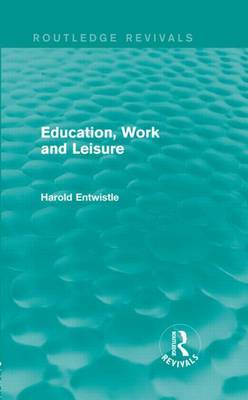Routledge Revivals
2 total works
First published in 1970, this book considers the alleged distinction between 'education for life' and 'education for work' and exposes the fallacies on which this and other similar distinctions are based. It shows that ideas on this subject are inextricably intertwined with wider views on the nature of culture, the limits of individual educability and the provision of educational opportunities. Indeed, Dr Entwistle argues that students need to be well informed of these issues in order to be in a strong enough position to face problems of education and social development that will occur during their working lives.
Antonio Gramsci is one of the few Marxist theoreticians to have considered the role and nature of education, yet paradoxically his revolutionary, political and social theory seems at odds with his conservative approach to the content and processes of schooling. This book, originally published in 1979, examines his educational, political and cultural writings in an effort to resolve this apparent discrepancy.
Gramsci's relevance lies in his treatment, in the context of his radical political theory, of themes which currently exercise modern radical educationists. Among the subjects he discusses are the sociology of the curriculum, the apparent discontinuity between the culture of school and that of daily life, problems of literacy and language in education, the role of the state in the provision of education, the cultivation of elites and the role of intellectuals, the relative functions of authority and spontaneity in education and the ambiguious relationship of these to differing political ideologies, particularly Fascism.

